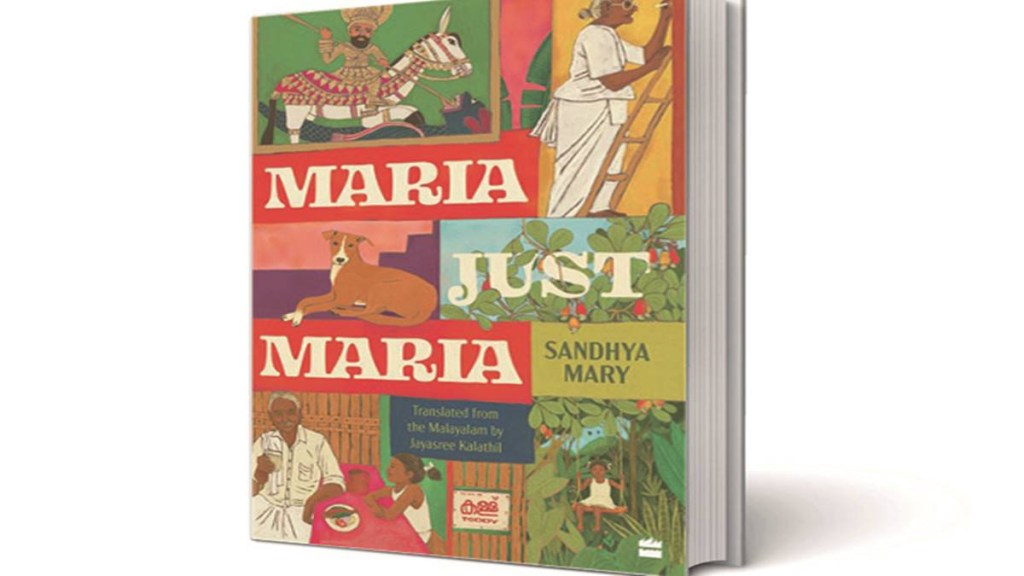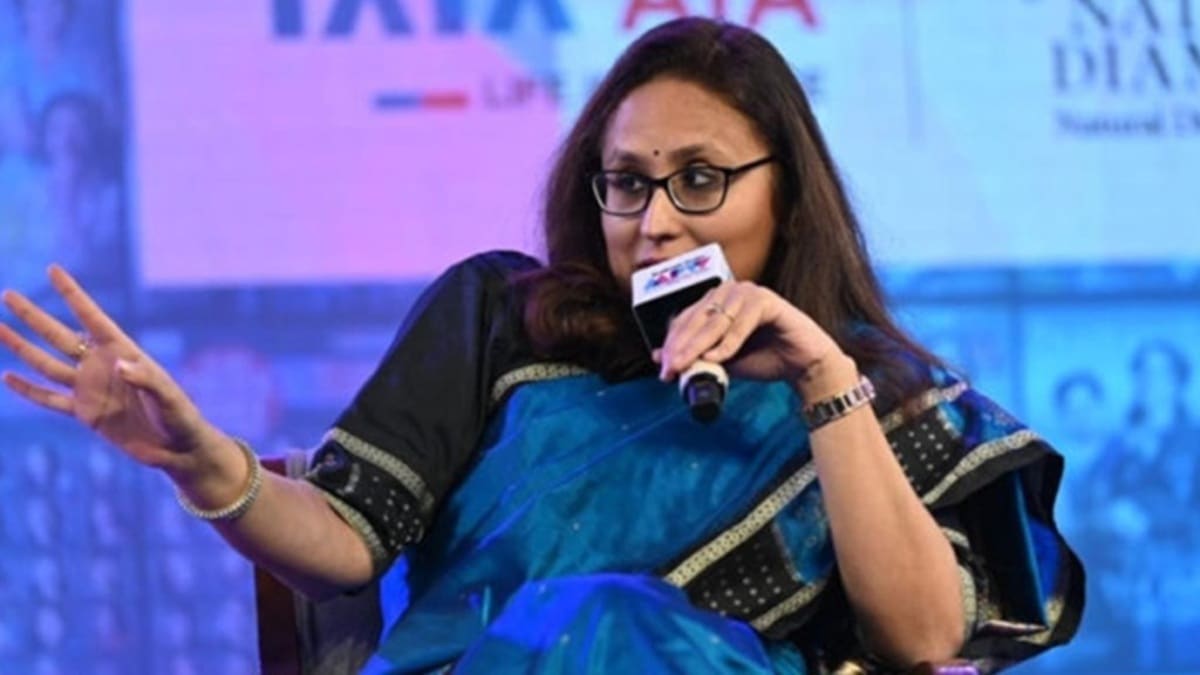Maria Just Maria
Sandhya Mary
HarperCollins
Pp 244, Rs 499
Returning from the Parliament of World’s Religions in Chicago in 1893 where he delivered his famous speech about tolerance and acceptance of all religions, Swami Vivekananda launched a two-year-long tour of India. The concluding leg of the tour was present-day Kerala. Vivekananda didn’t hold back on his frustration and anger at what he witnessed, saying it was a lunatic asylum, a statement attributed to the troubling nature of the caste system.
More than a century later, Kerala’s continuing ordeal with its own paradoxes is the subject of Sandhya Mary’s 2018 Malayalam novel Maria Verum Maria, translated into English as Maria Just Maria. Aiming at a whole sweep of the distressing levels of contradictions in modern society, the novel looks into the social morass engulfing not just one place, but a whole land reeling from the evils of gender inequalities and patriarchy. The novel’s protagonist is a child, Maria, who looks within the walls of their ancestral home, Kottarathil Veedu, through the characters inhabiting it to make sense of the world.
The inhabitants of Kottarathil Veedu make perfect examples of the social contradictions. Maria’s uncle Kariyakutty can perform miracles. One of her aunts, Neena, decides to lock herself in a room after her marriage. Her great-grandmother, Mathiri Valyammachi, could predict the future, including who would become her husband. Maria’s greatest desire was to rear an elephant. Chandipatti, the joint family’s pet, was a talking dog.
The novel begins in a hospital room where Maria is recuperating from an illness related to mental health. Watching Barack Obama becoming the first Black president of the United States on the television in her room, the young woman looks back at her life and her family, among them a husband who didn’t want to live with her only because she couldn’t live with anyone. Maria’s life, we learn, was intricately linked to her grandfather, Geeveraghese, who brought her up in Kottarathil Veedu. The girl had no love lost for her parents and three siblings who lived elsewhere. When Maria relocates to her parents’ home, her life takes a turn for the worse. Living with her grandparents, Maria becomes an archive of memories of the Kottarathil Veedu family and its ancestors.
Identified early as a ‘mad child’, Maria looks around her to find answers to her predicament. It is her grandfather who provides the much-needed comfort, narrating tales and handing over oral histories of their family and land while wandering with the child in the village and visiting its toddy shop. At home Maria wonders why her family is not allowing her aunt, Sheena, a college lecturer, to marry a colleague. The reason turns out to be not religion, but class and status. Neena, Maria’s aunty who lives in a closed room, takes in a destitute woman much to the consternation of her mother-in-law, who one day finds herself in the precarious position of asking for permission from the destitute woman to enter her own home.
The novel looks at the concept of family through the eyes of a child, but it becomes clear the wider focus is on the faltering society itself. There is an existential dilemma at the centre of Maria’s story that questions the arc of social progress. Philosophical questions, too, are asked about the sanity of those who term others mad. First penned as notes of thoughts in English, it became a novel in Malayalam with the author herself translating most parts from English. Jayasree Kalathil, who won the 2020 JCB Prize for Literature for Moustache, her translation of the Malayalam novel Meesha by S Hareesh, and the Crossword Book Award for Diary of a Malayali Madman, the English translation of the Malayalam novel by N Prabhakaran in the same year, takes Maria Just Maria to a wider literary world with an ease of translation that sticks its humour and satire on a perfect landing.
Faizal Khan is a freelancer








